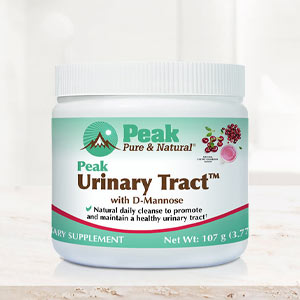One of the most challenging parts of going through menopause is that women tend to lose interest in sex. And with good reason — for many, sex becomes painful due to a condition known as genitourinary syndrome of menopause (GSM).
GSM encompasses a collection of genital, sexual and urinary symptoms and signs associated with decreased estrogen and sex steroid levels. These include vaginal dryness, vulvar atrophy and urinary urgency or incontinence.
The vulva refers to the external female genitalia, while the vagina relates to the internal anatomy. For both parts, menopause can cause itching, burning, pain, decreased lubrication and changes in the skin’s appearance.
Not surprisingly, the end result of GSM is a decrease in the frequency of sexual activity for women between the ages of 40 and 70. I mean, who wants to have sex when it hurts?
There are ways to help combat this pain, one of which is by reversing GSM itself. Since GSM is caused by estrogen deficiency, the standard remedy is vaginal ultra-low-dose estrogen therapy. But the breast cancer link can discourage some women from taking this route.
One team of researchers has hit upon another possible solution that may surprise you….
Sex can improve genitourinary syndrome of menopause
The researchers undertook a study involving more than 900 Japanese women aged 40 to 79 years to explore the link between regular sexual activity and vulvovaginal-related menopausal symptoms. They defined “regular sexual activity” as engaging in sex in the past three months. Having sex in the past year but not in the past three months was considered “lower sexual activity.”
To no one’s surprise, the researchers confirmed the proportion of women having regular sex decreased significantly with age, aligning with the decrease in Female Sexual Function Index scores for sexual desire, arousal and lubrication. The index consists of 19 questions on female sexual function under six domains.
One interesting note: despite the decrease in sexual desire, arousal and lubrication, orgasm and satisfaction were shown not to decline with age.
The study results showed that while some sexual functions and symptoms change with age, they may be maintained in women who engage in more regular sexual activity. Results also demonstrated a lower prevalence of GSM-related symptoms such as vulvar pain, irritation and dryness in women having regular sex.
What to do if worried about estrogen
Dr. Monica Christmas, associate medical director for The Menopause Society, said the study’s findings emphasize the importance of diagnosing and treating GSM.
“Only 2.9% of the participants reported using hormone therapy,” Christmas says. “Local low-dose vaginal estrogen therapy is safe and highly effective at alleviating bothersome vulvovaginal symptoms contributing to pain and avoidance of intercourse.
She adds that “optimal sexual health is integral to overall well-being” and that it is “imperative to recognize the effect these symptoms can have on women who aren’t sexually active.
“Treatment should be offered to anyone with symptoms, whether engaging in sexual activity or not,” Christmas says. “Normalizing use of local low-dose estrogen therapy should be a thing.”
So far, according to Johns Hopkins, clinical trials have indicated minimal to no systemic absorption of the type of topical estrogen therapy used to treat GSM, resulting in no increased risk of breast cancer recurrence.
But if you’re a GSM sufferer who’s still wary of estrogen therapy, there are things you can do to make sex more comfortable. One of the primary methods is vaginal lubrication.
There are water-based lubricants that you apply just before having sex to reduce discomfort during intercourse. You want to avoid products that contain glycerin or warming properties because they can irritate that sensitive tissue of the vagina. Also, if you’re using condoms, don’t use petroleum jelly or other petroleum-based products for lubrication because they can break down latex condoms on contact.
If this type of lubrication proves ineffective, you can try vaginal moisturizers to restore some moisture to your vaginal area. External moisturizers help the vulva area, and internal moisturizers are inserted into the vagina. These need to be applied every few days, and their effects generally last longer than those of a lubricant.
You can also try pelvic floor exercises to improve vaginal blood flow and tissue elasticity. A pelvic floor therapist can help if needed. Libido-boosting exercises, like hip thrusts, will increase blood flow to the pelvis, mimicking what happens during intimacy. It’s well known that blood flow improves erections for men, but it’s less known that for women, it enhances our pleasure zones.
In addition, make sure you’re managing your stress levels. The stress hormone cortisol decreases testosterone, which significantly impacts sex drive in women. It also negatively affects the body’s production of DHEA (dehydroepiandrosterone), a hormone precursor that the body uses to produce estrogen and testosterone.
Sources:
The pleasure prescription: Why more sex means less menopause pain — ScienceDaily
Cross-sectional study of the association between regular sexual activity and sexual function and genitourinary syndrome of menopause–related symptoms — Menopause
Genitourinary Syndrome of Menopause — Johns Hopkins Medicine
Vaginal atrophy — Mayo Clinic
Experiencing Vaginal Dryness? Here’s What You Need to Know — The American College of Obstetricians and Gynecologists
Read full article here




